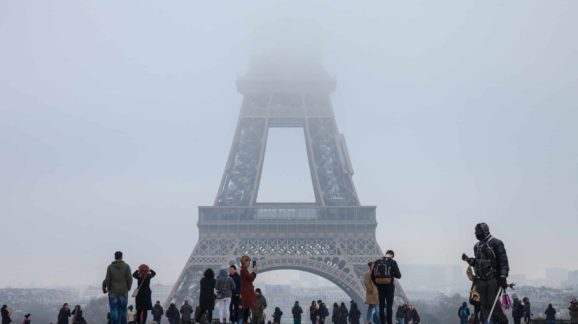U.S. Withdraws from Paris Agreement: Six Questions for a Potential Future Biden Administration

Photo Credit: Getty
The United States officially exited the Paris Climate Treaty on Wednesday, November 4, the first day on which a party may withdraw from the pact under its terms. On multiple occasions during the past year and in his climate policy plan, former Vice President Joe Biden has pledged, if elected president, to rejoin the Paris Agreement on inauguration day.
President Trump announced his decision to pull out of the Paris Climate Treaty, pursuant to its Article 28 withdrawal mechanism, on June 1, 2017. In the weeks leading up to that event, the Competitive Enterprise Institute (CEI) and its allies urged President Trump to keep his campaign pledge, explaining the economic, legal, and constitutional perils of remaining in the pact. My lengthy blog post of May 30, 2017 lays out the case against Paris in considerable detail.
If Biden becomes the nation’s next chief executive, energy-freedom advocates should raise the same basic concerns we spotlighted for President Trump in the Spring of 2017.
(1) Did President Obama set a dangerous precedent and undermine the separation of powers when he joined the Paris Agreement without obtaining the Senate’s advice and consent?
(2) Is the Agreement’s core policy agenda of coercive decarbonization inherently toxic to the U.S. energy renaissance and the emerging era of U.S. energy dominance?
(3) If America rejoins the Paris Agreement, will U.S. leaders experience incessant pressure from foreign governments, multilateral bureaucrats, and their media and environmentalist allies to adopt job-killing policies imposing enormous costs on U.S. households?
(4) Will remaining a party to an Agreement based on the “climate crisis” narrative dramatically increase the number of climate lawsuits aiming to criminalize fossil energy development, plunder fossil energy companies, and destroy shareholder value in the name of protecting it?
(5) Is it the case that the Agreement will provide no detectable mitigation of climate risks in the policy relevant future while imposing enormous costs on the American people?
(6) Does the Agreement’s mid-century emission reduction goal require energy-poor countries to drastically reduce their people’s current consumption of affordable energy from fossil fuels, and does that imperil their efforts to eradicate poverty and industrialize their economies?
Although a future Biden administration may well answer all those questions in the negative—or, more likely, ignore them—the answer in each case is a resounding “yes.” Raising those questions would at least have the virtue of clarifying for the American people the real energy issues over the next four years.